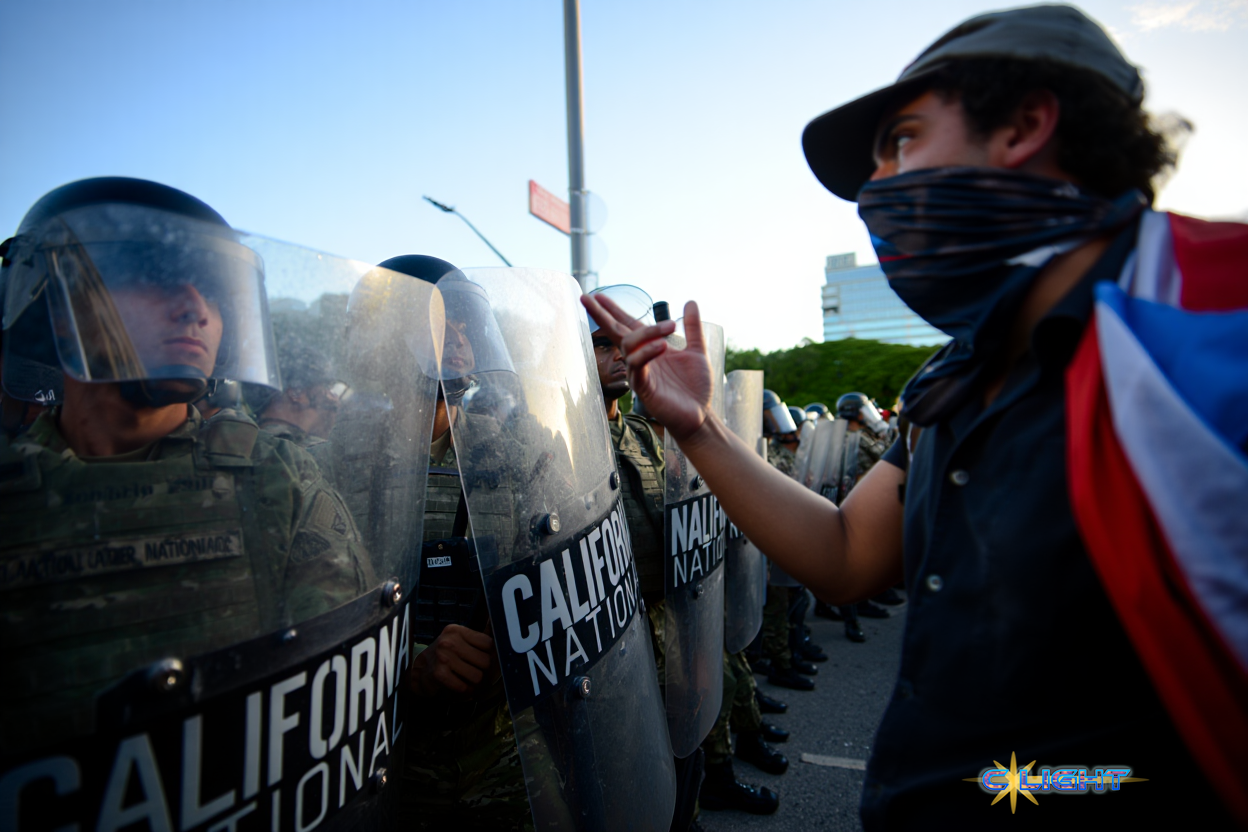The chaotic, smoke-filled battle for the streets of Los Angeles has escalated into a high-stakes constitutional showdown, with the state of California now preparing to sue the federal government. The move comes in response to President Felonious Punk’s extraordinary order to deploy federalized troops into the city, an action Governor Gavin Newsom has decried as an “unlawful deployment” and a “serious breach of state sovereignty.” The conflict has moved beyond a protest; it is now a fundamental crisis of command, pitting state against federal authority and turning the city’s own law enforcement agencies against each other.
The core of the legal battle is the audacious maneuver used by the White House to put soldiers on American streets. While officials have confirmed the Insurrection Act of 1807 was not formally invoked, the President signed a memorandum authorizing 2,000 National Guard troops, plus “any other members of the regular Armed Forces as necessary,” to be deployed under federal Title 10 authority. Legal experts have called this a “constitutional gray zone,” an attempt to achieve the effect of a domestic military intervention without the political stain of using the law designed for it—an act without precedent since the civil rights era.
Governor Newsom’s response has been one of escalating defiance. After declaring the federal move was “purposefully inflammatory” and designed to “manufacture a crisis,” his office announced late Sunday it was preparing a lawsuit to seek an injunction. In a direct challenge to the administration’s authority, Newsom also deployed the California Highway Patrol (CHP), a clear signal that the state believes it can and should manage its own affairs. “We didn’t have a problem until Trump got involved,” Newsom stated bluntly.
This high-level conflict has created a schizophrenic situation on the ground, exposing a deep rift between the two primary law enforcement agencies in Los Angeles County. The Los Angeles Police Department (LAPD), which governs the city proper where protests were centered Friday, issued a statement Saturday commending the “peaceful” nature of the demonstrations in its jurisdiction. This stands in stark contrast to the LA County Sheriff’s Department (LASD), which has jurisdiction in satellite cities like Paramount. The LASD described the crowds there as “violent” and explicitly stated that when federal agents “come under attack,” they will provide aid.
This schism reveals the impossible position local law enforcement has been put in: torn between state law and city policy that forbid cooperation with immigration raids, and the immense pressure from a federal government that, through its top officials, has directly accused them of being derelict in their duty and siding with “chaos and lawlessness.”
The battle for Los Angeles is no longer just a physical confrontation between protesters and agents. It is a multi-front war over power and authority. The impending lawsuit will shift the primary battlefield from the streets to the courts, setting the stage for a historic legal fight over the limits of presidential power, the rights of states, and the very definition of “law and order” in a deeply divided republic.
Discover more from Clight Morning Analysis
Subscribe to get the latest posts sent to your email.










